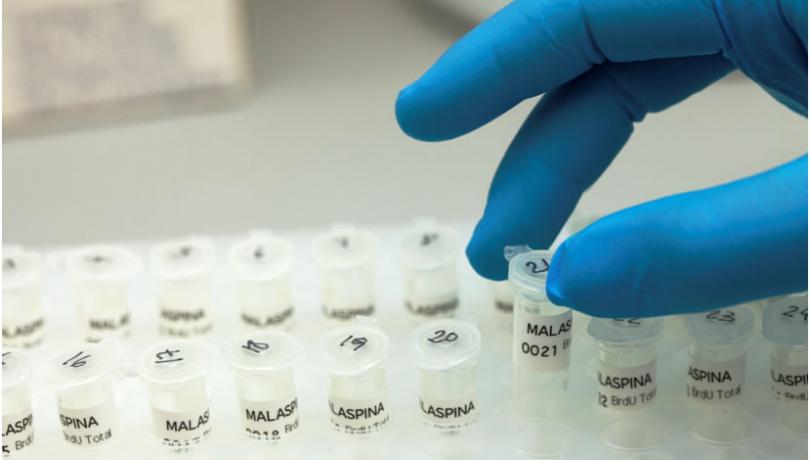The research project called Biosensomics, presented by Silvia G. Acinas, leader of the Ecology and Genomics of Marine Microorganisms research group at the ICM, has received one of the BBVA Foundation Grants for Researchers and Cultural Creators 2015 to study the pollution of ocean waters. For this research, scientists will use deep-water samples of the Malaspina Expedition, collected in 2010 and 2011 from the oceans around the planet.

The research project called Biosensomics, presented by Silvia G. Acinas, leader of the Ecology and Genomics of Marine Microorganisms research group at the ICM, has received one of the BBVA Foundation Grants for Researchers and Cultural Creators 2015 to study the pollution of ocean waters. For this research, scientists will use deep-water samples of the Malaspina Expedition, collected in 2010 and 2011 from the oceans around the planet. The scientists will analyse the pollutants of these samples by using a very innovative technique, as the jury the program of the BBVA Foundation highlighted. Instead of measuring the pollutants directly, the research will detect genes and degradation pathways of microorganisms associated with this process. That is, they will track the activity of microorganisms decomposing pollutants and decontaminating the environment (a process so-called bioremediation).
The abundance or health of certain species of living beings in a given habitat provides information about the ecological status of the environment. That is why scientists use these species as bioindicators, in other words, indicators of the ecological status. Many microorganisms act as bioindicators.
The project led by Silvia G. Acinas goes further the simple search of pollutants and joins bioremediation and bioindicators together into a new concept called biosensomics, hence the name given to the project. To reach their goal, researchers will analyse the set of genes from the genomes of the microbial community of water samples (technically known as metagenome), and the expression of these genes (metatranscriptome).
With this information they can track the routes of degradation of various pollutants and assess their impact and relevance in some areas of the ocean. Besides, as Silvia G. Acinas emphasises, "we will know the bioremediation capacity of bacteria isolated from the deep ocean and we will detect which are responsible of decomposing contaminants such as methyl mercury, a toxin with harmful effects on human health that is accumulating in the tissues of oceanic organisms and that can be transferred to humans through the marine food chain. "
The BBVA Foundation awards the Grants for Researchers and Cultural Creators individually. In the second edition of this highly competitive program, more than 1900 projects have been submitted, of which only 63 have been selected to receive the grant. These grants are distributed in 11 areas of knowledge. Biosensomics is one of the six projects selected in the area of Environment and Earth Sciences.